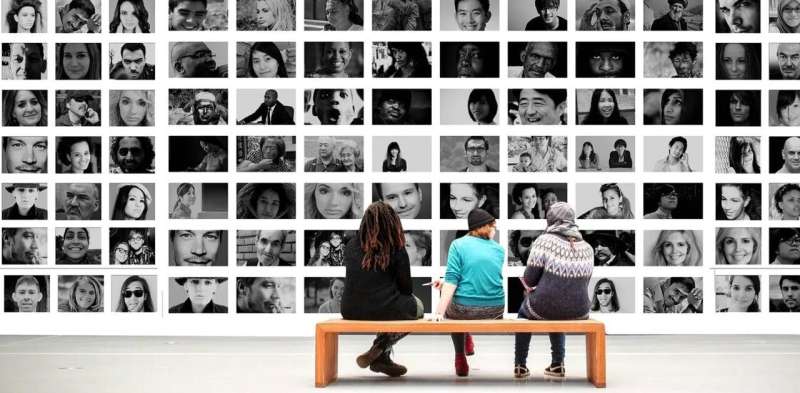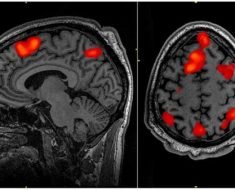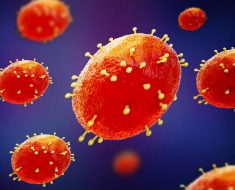
The pandemic has fundamentally reorganized our relationships with family, friends and colleagues. Socializing during lockdown has been discussed at length since the crisis began over one year ago.
We have learned that technologies such as Zoom, Skype and FaceTime will never replace real human contact and that it is essential to maintain social connections despite social distancing.
In light of these findings, another question arises. Why can’t humans do without others? The answer is simple: social connection is a fundamental need.
My colleagues and I at Université Laval conducted a review of research on social connections and here is what we learned.
Human beings are fundamentally social
From birth to death, human beings need others to live, survive, develop and die. Our mother gives birth to us and our spouse or relatives accompany us to death.
In between, our lives are punctuated by the social relationships we have with others.
Our youth is influenced by the quality of our relationships with our parents and families and by the education we receive. It is also influenced by the environment in which we live. People we meet influence us positively and negatively.
Our friends provide us with entertainment, enriching experiences, shared emotions and memories. Likewise, our colleagues allow us to evolve, serving as examples or counter-examples. We are the result of a set of positive, negative or neutral influences that we experience throughout our lives which help develop our personality.
A known and recognized need
Several theories can explain why our need to socialize is fundamental. One of the best known is Abraham Maslow’s hierarchy of needs, developed in 1943 and often represent as a pyramid.

Maslow indicated that the first two levels (physiological and safety) are linked to the assets and the context in which we evolve. The others are necessary to satisfy our needs for food (parents, farmers), shelter (family) or security (police, firefighters, doctors, the state).
On a second level, Maslow talked about being and more psychological needs, such as love or belonging (to friends, to a community, to a family), but also the development of esteem (being part of a group, being useful in society). These needs, again, require others to fulfil them.
In The Ecology of Human Development, psychologist Urie Bronfenbrenner tried to explain the social influences to which human beings are exposed during their lives through a socio-ecological model composed of various levels.
Simply put, it is necessary to understand that a person is influenced all their life by their personal characteristics and close or family environment. They are also affected by the institutions they visits, such as day care centers or schools, the culture of their community, embodied by traditions or language or the policies that apply in their context, and finally society as a whole, with its values and ideologies.
Happiness comes from social relations
A series of studies conducted by Harvard researchers over the past 75 years has revealed that happy human beings are those who maintain quality social relationships throughout their lives.
This means it’s not the quantity of friends we have, but the quality of the relationships we have that is important—these keep us healthy both physically and mentally. While good relationships keep us healthy, loneliness is what kills us.
The research also provides insight into what leads people to live alone and isolate. While some explanations can be found in personal and individual characteristics, the majority come from negative emotional experiences that tend to accumulate. One is not born alone, one becomes alone.
The expression of social needs
The human being evolves in three types of environments that reinforce the expression of their social need: the physical, cultural and human environments.
The physical environment represents the place where we live, the weather in our region or the services available to ensure our basic needs (groceries, health, running water). The cultural environment is the set of spiritual, material, intellectual and emotional elements that condition our existence and give rhythm to our calendars. Human environments include the people who condition our values, our ideologies and our ways of acting.
https://youtube.com/watch?v=8KkKuTCFvzI%3Fcolor%3Dwhite
Our research review also revealed that there are six pillars that have a major influence on our socialization: education, leisure, work, economy, politics and justice.
All of these areas seem to play a privileged role in determining our quality of life and development. Strangely, health did not appear in our analysis but it should probably be taken into consideration as the pandemic has revealed.
Finally, we also need alone time to recharge and disconnect from social life.
How to fulfil your social needs
Here are four tips to help fill the need to socialize during the pandemic, but also to remain happy in life.
1) Focus on various forms of physical distancing and not social. We are social beings and it is extremely difficult for us to live without the contact of others for a long period of time.
2) Favour a reasonable and temporary use of technologies because they will never replace the need to see each other in person. This is true in all aspects of life.
3) Create opportunities to meet—when allowed—in order to strengthen one’s social capital. Do this by connecting with those close to you, one’s community or social network (bonding); by connecting with people from different or more distant networks (bridging); or by connecting with the right resources and services of institutions, organizations or authorities (linking).
4) Adapt your know-how and expertise to the new social rules. The Public Health Agency of Canada gives us recommendations and guidelines to continuing our activities. It is for everyone to adapt according to their field of expertise, respecting guidelines as much as possible without forgetting that a human being must also be in a social relationship to be happy.
No response model is perfect but we have the capacity to learn from others and adapt constantly to improve ourselves. It is time to stand together and rely on each other.
Finally, do not forget that some may be suffering fatally from isolation and that whole generations may be affected by this crisis.
Source: Read Full Article





